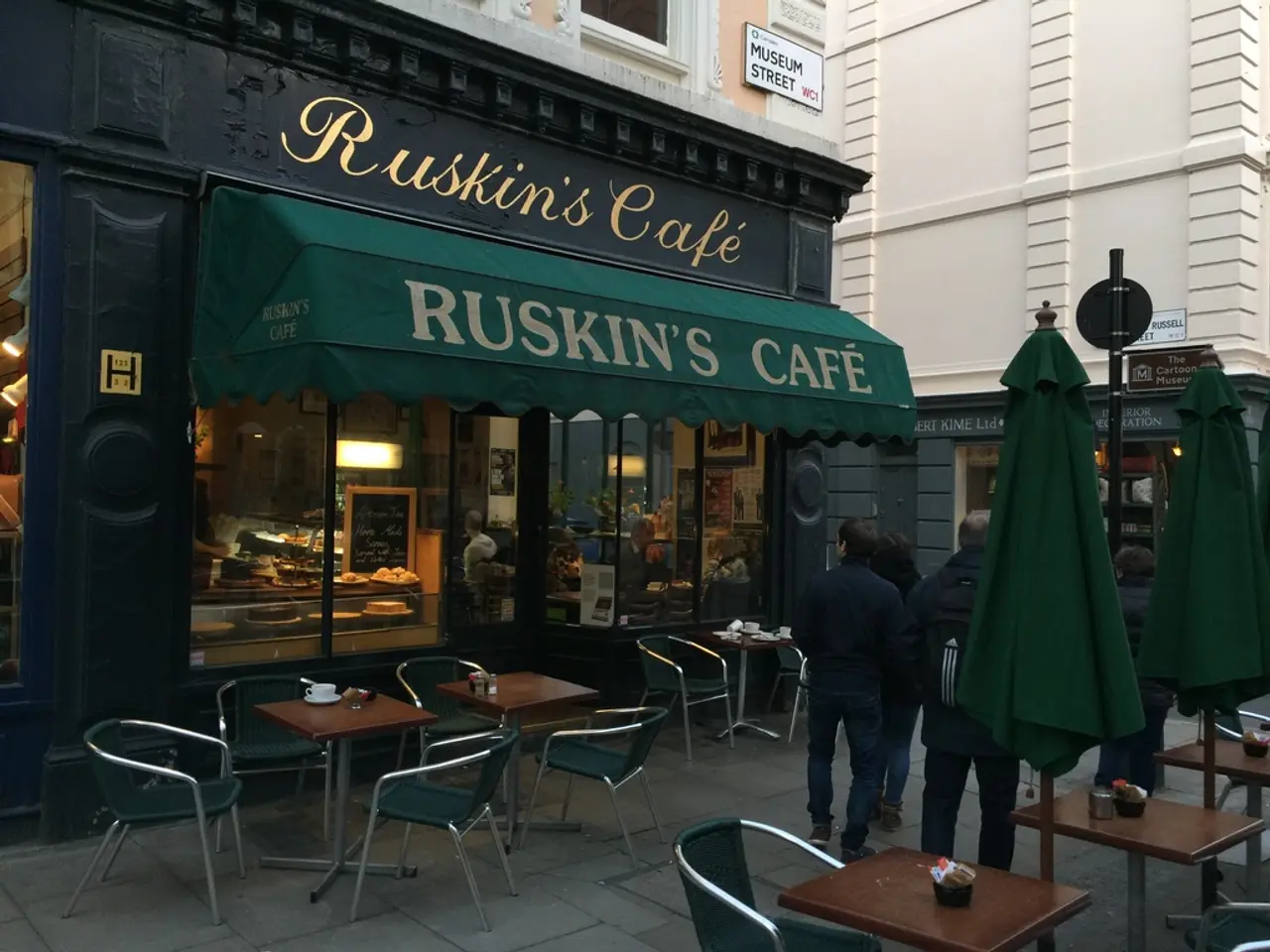London has become a nest for Kazakhstan's cultural roots
Kazakhstan is positioning itself as a unique cultural bridge between East and West, aiming to attract investment and tourism while deepening cross-cultural understanding. The Central Asian nation is recalibrating its external posture under President Kassym-Jomart Tokayev, making soft power central to its global image.
At the heart of Kazakhstan's strategy for cultural outreach and global rebranding is the leveraging of soft power to enhance its international image. This approach centres on promoting the country's music, cuisine, and broader cultural heritage. This multifaceted strategy is part of a larger multivector strategy aiming to balance relations with major powers while asserting a unique national identity and regional leadership.
Highlighting shared Turkic cultural heritage is a key element of the strategy. Kazakhstan actively promotes its ethnic and historical ties within the Turkic world through participation in organisations such as the Organisation of Turkic States and cultural bodies like TURKSOY. These platforms help Kazakhstan project soft power by emphasising common language, traditions, and history, fostering regional integration and mutual understanding with countries like Türkiye.
Another essential component of the strategy is the development of a vibrant creative economy. Partnerships with international cultural organisations, such as the British Council, aim to strengthen Kazakhstan's cultural sector through training, networking, and supporting creative entrepreneurs. This fosters growth in the music, arts, and cultural industries, enabling Kazakhstan to showcase its cultural richness globally while creating sustainable careers at home.
Cultural diplomacy is also a crucial facet of Kazakhstan's multivector foreign policy. By cultivating cultural soft power through its music, cuisine, and heritage, Kazakhstan asserts its autonomy and strengthens its global profile beyond geopolitical constraints.
The UK is a strategic choice for Kazakhstan's cultural outreach, reflecting both strategic pragmatism and symbolic ambition. The large Kazakhstani representation in the UK, mostly sustained by students and young professionals, and the strong audience for Kazakhstan in the UK, with more than $18bn in UK investment and over 550 British-linked companies operating in Kazakhstan, make the UK an ideal location for cultural engagement.
The group Astana Sazy, known for their performances that draw on Kazakhstan's deep nomadic past, including folk epics, shamanistic rituals, Islamic spiritual traditions, and oral storytelling, is in London for a rare UK appearance. Their performance is part of a wider movement to rebrand Kazakhstan globally through music, cuisine, and culture.
Cultural figures in the UK are seen as authentic cultural ambassadors and strategic soft power assets. Kazakh pop sensation Dimash Qudaibergen performed in London in June and will return in November for a headline concert at London's O2 arena. Cultural figures, including Kazakh boxer Gennadiy Golovkin, serve to enrich the UK's multicultural landscape and enhance Kazakhstan's international cultural profile.
Uzbek restaurants such as OshPaz and Samarkand have also popped up in recent years, helping to introduce the rich culinary traditions of central Asia to London. Turkistan, London's only Kazakh restaurant, is situated in Welling, south-east London, and serves traditional Kazakh food to introduce the cuisine to the capital.
Eldaniz Gusseinov, a non-resident research fellow at the Haydar Aliyev Center for Eurasian Studies in Turkey, notes that Kazakhstan's cultural outreach is part of a deeper strategy to become a middle power and project influence beyond central Asia. Emil Avdaliani, a political analyst and historian of the Silk Roads, suggests that Kazakhstan is skillfully using Russia's preoccupation with the war in Ukraine to limit the Kremlin's projection of power, while still maintaining diplomatic ties.
In a year that also saw the British Museum's major Silk Road exhibition, it's tempting to discern a wider trend of increased interest in central Asian culture in the UK. The British-Kazakh Society and fans of artists such as Dimash provide grassroots cultural support in the UK. Astana Sazy uses up to 20 instruments in their performances, many of which are unique to Kazakh heritage.
In conclusion, Kazakhstan's global cultural outreach and rebranding revolve around embracing Turkic identity, enhancing cultural industries, and deploying cultural diplomacy to deepen international ties and assert its distinct position on the world stage. This multifaceted approach integrates music, cuisine, and culture as key elements of soft power to boost national image and foster broader regional cooperation.
- Kazakhstan's strategy for global rebranding includes promoting its fashion-and-beauty, food-and-drink, lifestyle, travel, and entertainment, drawing on its deep cultural heritage and shared Turkic heritage with countries like Türkiye.
- In the UK, Kazakhstani cultural figures such as Dimash Qudaibergen, Gennadiy Golovkin, and the group Astana Sazy, as well as Uzbek restaurants, contribute to enhancing Kazakhstan's international cultural profile and introducing its cuisine and Arts to a wider audience.
- Embracing its Turkic identity, developing a vibrant creative economy, and practicing cultural diplomacy are key elements in Kazakhstan's multifaceted approach to soft power, aiming to assert a unique national identity and regional leadership while deepening cross-cultural understanding.






